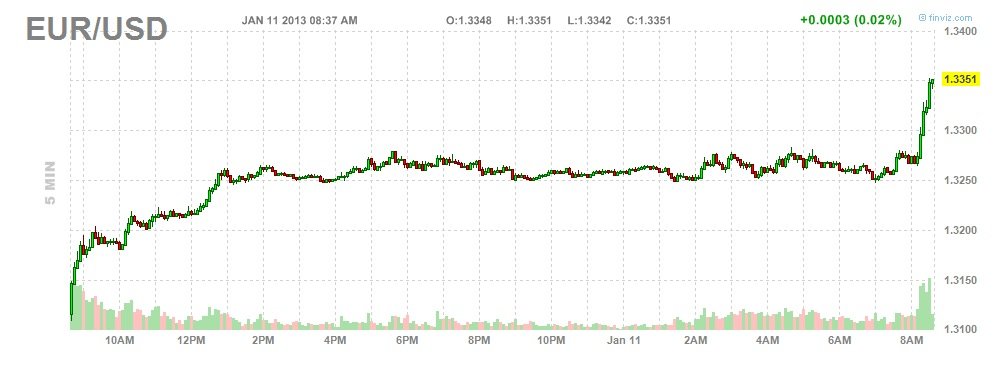“We’ve written a lot about the weakness of the Japanese yen, a move that’s associated with the country’s new Prime Minister, and his aggressive agenda of monetary and fiscal easing.
But actually, it’s more than just that.
In a note this evening, SocGen’s Sebastien Galy observes that shifts are underway not just in the yen (JPY) but also in the Swiss Franc (CHF) and the US dollar:
FX implied volatilities have been rising from ultra low levels, as they did pre-Lehman times. It is an important sign not of impending doom, but of a global reallocation of capital. Old regimes are dying and FX is the first sign of this process. We are seeing this in JPY, are starting to see this in CHF and will eventually see it happen in USD, hopefully in H2 or Q4 as the US economy steadily recovers. As capital is reallocated across the world, the allocation between bonds and equities as ultimate “domestic” claims to global growth will eventually also become more unstable. For now, these wobbles will be crushed as monetary policy remains very expansive globally, but the process started. FX is the warning sign.
The 2007-2012 crisis period has been characterized, in part, by extremely predictable correlations among a range of assets. So for example, a “risk on” period might be characterized by higher stocks, a weaker dollar, a higher aussie dollar, and so forth.
But now, for example, we’re seeing dollar strength coincide with a strong market.
And the Swiss Franc, which has been the favored “safe-haven” currency of Europe (everyone rushed into Switzerland) during the crisis is now losing luster, as people feel comfortable repatriating money back into the Eurozone.
In fact, EURCHF (the euro against the Swiss Franc) has been on a crazy tear in just the last few days…”
Full article and charts
Comments »
![]() into Switzerland, to escape the crumbling Eurozone.
into Switzerland, to escape the crumbling Eurozone.![]() back out of Switzerland.
back out of Switzerland.
